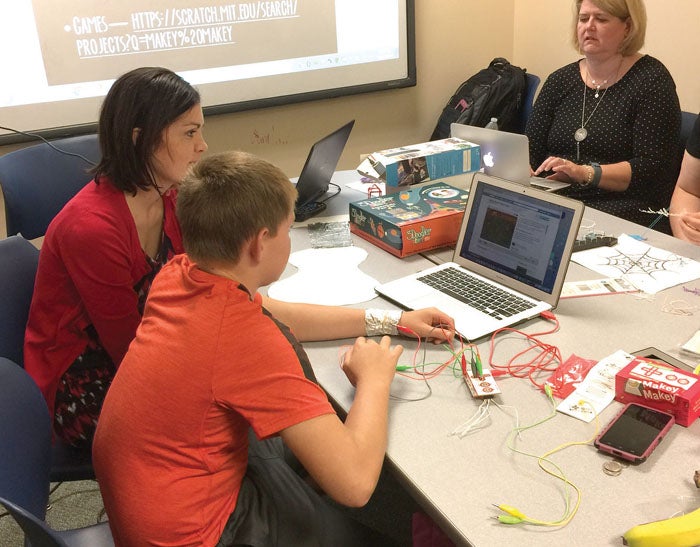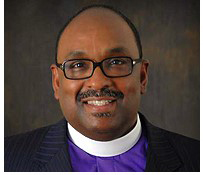Rowan Public Library, Catawba College get grant for makerspaces
Published 11:19 am Tuesday, November 21, 2017

- Submitted photo Learning and making in the makerspace at Rowan Public Library. A new grant will allow the library and Catawba College to collaborate on such projects.
By Laurie Lyda
Rowan Public Library
SALISBURY — Have you ever seen a 3D printer or 3D Doodle pen in action? Played with a GoPro camera? Experimented with a Makey Makey?
Rowan Public Library and the Catawba College Curriculum Materials Center have joined forces to ensure that more Rowan County residents and Catawba students will have such opportunities.
Librarians Hope Loman and Abigail Hardison and CMC Director Amanda Bosch applied for and received a $44,000 Library Services Technology Act grant with the intent to create and coordinate makerspaces at each location to ensure that library patrons and Catawba College students can benefit from each other for education and enrichment.
“We were thrilled to discover we had won the grant,” Bosch said.
“Abby and I were actually sitting in the (library) makerspace working on something when the email came in announcing we had been awarded the grant. We spent a few seconds looking at each other in disbelief,” Loman said.
The grant originated from a conversation between Loman and Bosch in fall 2016 about the CMC and how it serves education students. They realized the potential of a collaboration between the two institutions. It “would allow each of us to expand the makerspace offerings in our respective libraries as well as give our education students the opportunity to work with families in the community to learn about these tools,” Bosch said.
Once the funds were secured, Loman and Bosch, along with Hardison, quickly turned to planning and implementing their goals. This fall has seen the development of curriculum and programs; new events and workshops will be rolled out in 2018.
Catawba College students have already conducted a series of instructional programs in the library’s newly designed makerspace, also known as The Cooperative Lab or COOP.
One of Bosch’s graduate classes gave demonstrations of the new equipment, including 3D Doodle pens and Makey Makeys, in September. In October, Bosch’s undergraduate introduction to teaching students led a Do-It-Yourself costume/cosplay class, demonstrating different software to create 3D images, such as tiaras and superhero emblems.
The events have been well-received and well-attended. From seeing the 3D printer create mini-catapults or tiaras to making music with a banana, courtesy of a Makey Makey, people have been excited to learn about these technologies and experiment with them after the demonstrations. More programs are being coordinated for the spring 2018 semester, as well.
“There’s been a steep learning curve with learning to use some of the technology,” Loman remarked. “But the feeling you get when you finally figure out how to make something is really rewarding.”
Learning, whether as facilitator, patron or student, is a central tenet of the RPL and CMC collaboration.
According to Bosch, from the perspective of a college educator, “Seeing what other people in the community are making is inspiring and using these tools to engage students can be a way to increase understanding across a variety of curriculum areas. I hope my students will be able to take these experiences with them and challenge themselves to engage their own students in new activities or use these resources as they plan lessons and units within their own future classrooms.”
Loman said she’d “like to see a wider range of library programs hosted in the makerspace, such as video editing and music recording,” she said. Songwriting sessions are also on the agenda, thanks to the Garage Band app on the iPads bought with the grant.
She has goals for her own learning, too. “Personally, I’d like to see myself being able to create my own designs on the 3D printer or being able to use Arduino and Raspberry Pi.”
For those unfamiliar, Arduino and Raspberry Pi are open source programmable electronics that allow people to experience and learn how many of our modern devices actually work and then build their own.
For example, the tiny credit card-sized computer Raspberry Pi can be used to stream movies and music on your TV, boost your Wi-Fi range, or build your own remote-controlled car that can be operated with your smartphone. These affordable and accessible technologies are designed and marketed for everyone – not just tech experts – to learn, tinker and create.
While staff excitement about the creative potential of this equipment is high, they’re also energized by the underlying mission of the makerspaces, too. “Makerspaces give citizens the opportunity to use tools and embrace objects that they otherwise might not have access to, whether because of financial constraints or lack of resources,” Loman said.
The rising popularity of makerspaces speaks to a growing desire to engage, learn and share that knowledge. Witnessing this process is a happy side effect of the collaboration. “The ‘aha’ moment when you witness a person’s world grow a little bit bigger is what being a librarian is all about,” Hardison said.
“As libraries grow and evolve with society, it has always been our mission to bring the broader world of possibility to the local level, so providing these technologies to people is just another step in that direction. The future is not something happening outside Rowan County. It’s here, and it’s happening now, and it’s up to us to embrace it and use it to our benefit.”
On Nov. 13, RPL’s makerspace had “Appy Hour.” Catawba College teaching students demonstrated how to make art, music, videos and even 3D objects using free apps on electronic devices.
From 2 to 4 p.m. Dec. 16, The COOP will host the teen program “Let’s Make a Playlist.” Participants will curate and prepare playlists of music from the 1960s that will be featured at the library’s Welcome Home celebration on Dec. 30.
For more information about “Let’s Make a Playlist” or other library makerspace programs, contact Loman at Hope.Loman@rowancountync.gov or 704-216-8258 or visit www.RowanPublicLibrary.org




